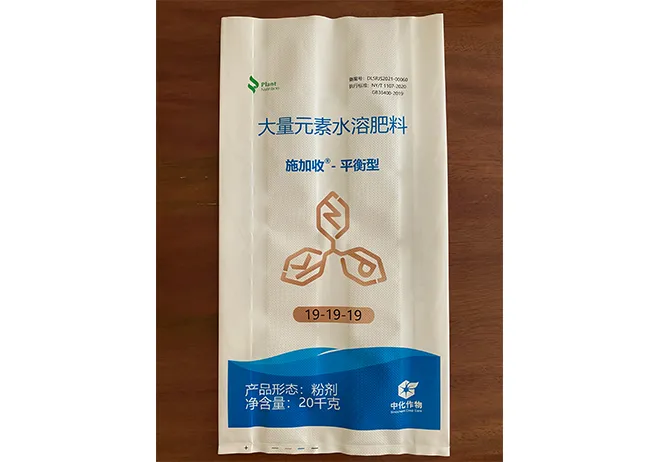In recent years, the global conversation around environmental sustainability has grown louder and more urgent. One of the facets of this dialogue includes an increased demand for compostable packaging, particularly with items like food pouches. Addressing the market's need, compostable food pouches emerge as a revolutionary product that blends convenience with eco-friendliness. Understanding their potential goes beyond just their ability to decompose; these pouches are part of a broader narrative about responsible consumption and environmental consciousness.

Compostable food pouches are designed with materials that break down faster and more efficiently than traditional plastics. Typically made from organic waste materials, these pouches use advanced biodegradable polymers. Companies specializing in this technology employ rigorous testing and expert research to ensure that the pouch can degrade within a specific time frame under appropriate composting conditions. This expertise underscores the industry's commitment to sustainability and innovation in packaging technology. By choosing compostable food pouches, consumers and businesses alike participate in reducing landfill waste, thus contributing to decreasing the accumulation of microplastics in ecosystems.
Switching to compostable pouches doesn't mean compromising on quality or durability. These pouches are engineered to preserve the freshness and taste of the food products they contain. From frozen goods to snacks, their material composition ensures that products maintain optimal shelf life. The expert-led advancements in barrier technologies have also enabled these pouches to provide robust protection against moisture and air, two critical factors that can detract from a product's quality over time. The trustworthiness of these innovative solutions lies in their ability to offer an attractive balance of performance and sustainability, setting new standards in the packaging industry.

Environmental experts emphasize the importance of not only choosing compostable solutions but also understanding the proper disposal methods. Compostable food pouches must be placed in industrial composting facilities where conditions like temperature and microbial activity differ significantly from home composting setups. Thus, educating consumers about appropriate disposal practices becomes essential. This knowledge-sharing demonstrates environmental stewardship and establishes authority in promoting sustainable living practices among consumers.
compostable food pouch
As more governments impose stricter regulations on plastic usage, businesses that adapt to compostable packaging solutions can gain a competitive edge. These forward-thinking companies demonstrate corporate responsibility and align with consumer values increasingly dictated by environmental consciousness. Building a brand reputation around sustainable practices can engender customer loyalty and open up new market segments, proving that profitability and sustainability can coexist harmoniously.
Retailers and food producers have the opportunity to showcase transparency and credibility by committing to compostable packaging. By clearly labeling products and informing consumers about the materials used, companies can foster a deeper trust with their customer base. Furthermore, businesses can highlight their environmental certifications to reassure customers of their commitment to high industry standards. This emphasis on trustworthiness in every step, from production to disposal, reiterates a brand's dedication to genuine sustainable practices.
Compostable food pouches represent far more than a packaging choice; they symbolize a movement towards securing a healthier planet for future generations. As more companies and consumers realize this, they form synergistic relationships based on mutual environmental goals. In this shared journey towards sustainability, compostable pouches not only redefine packaging norms but also rejuvenate our relationship with nature, reinforcing a commitment to safeguarding the world we inhabit.